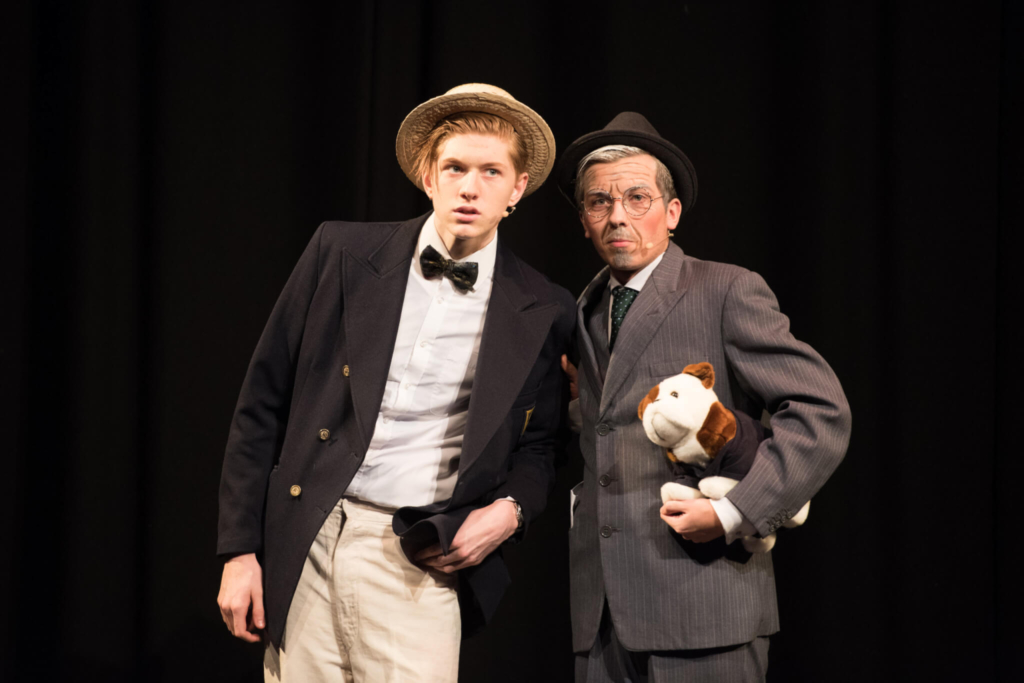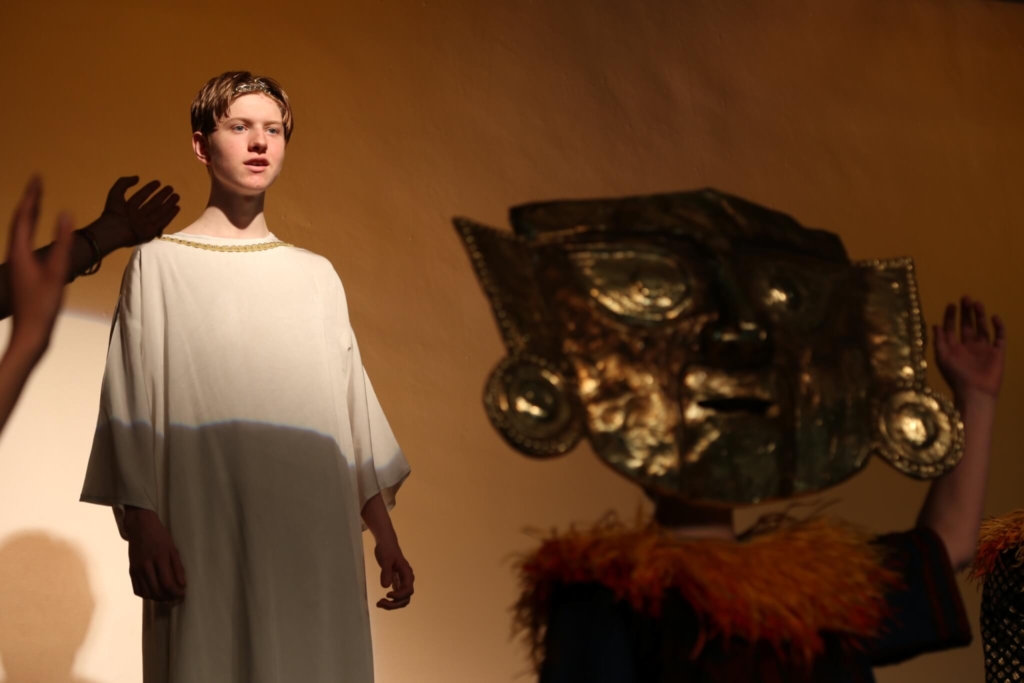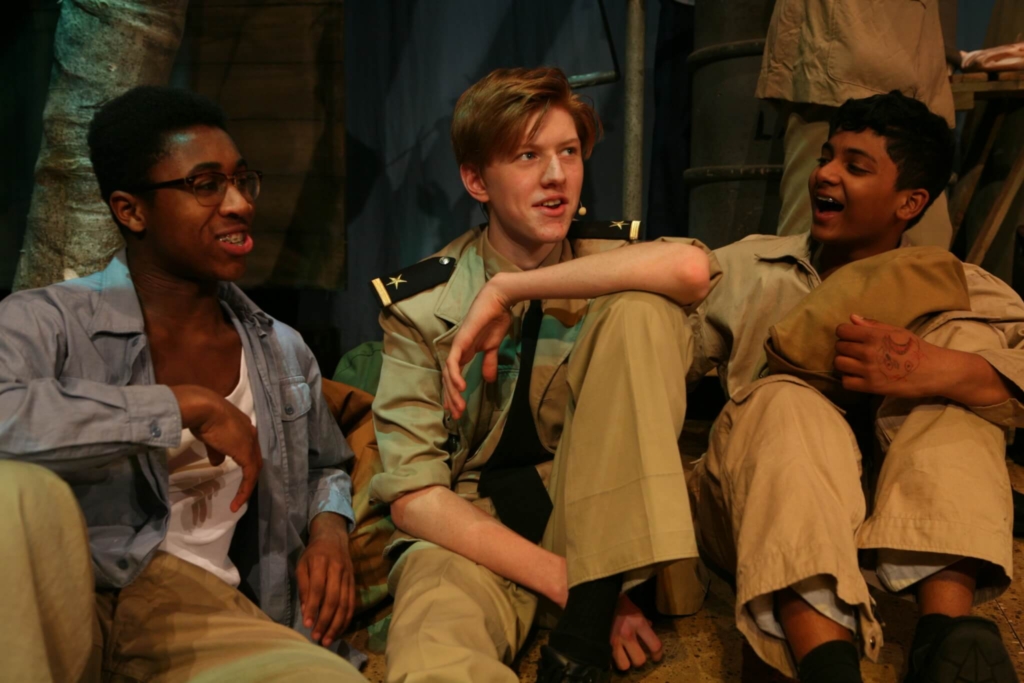Your child’s first day in the Little Lyons is the beginning of an exciting journey of learning, curiosity and discovery, which will help set them up for the rest of their lives.
Fostering a love of learning
The four pillars of the EYFS (Early Years Foundation Stage) guide all learning in the Little Lyons:
We offer a rich curriculum, following the guidelines laid out in the EYFS. The three prime areas of learning and the four specific areas are taught alongside the Characteristics of Effective Learning. Our Little Lyons children benefit from a specially designed EYFS building with both indoor and outdoor classrooms. They also access the rest of the facilities within the School including opportunities to use the newly renovated Library, multi-purpose halls, an all-weather Astroturf and the on-site school Swimming Pool (from Reception).
High staff to student ratios, and highly qualified staff, ensure that our youngest children are supported and challenged at the appropriate level. The children access a wide variety of activities which have been purposefully designed to build on the children’s learning. Children benefit from daily carpet sessions which focus on Literacy, Maths, Phonics, Topic and PSCHE. Additionally, specialist teaching starts from Nursery with specialist teachers for Yoga, French, Music, PE and Drama. From Reception, the children benefit from our use of Sudbury Fields, John Lyon’s playing fields, where they attend a weekly Forest School session. Children in Reception use the Oxford Reading Scheme and read individually with a teacher every day.
Our partnership with parents
We work closely with parents and build strong partnerships to together support your child to fulfil their potential. There are regular opportunities for parents and staff to communicate with one another including through emails, at drop off and pick up and through Parents’ Evenings. Parents are also regularly welcomed into School for events such as Sports Day and Christmas Plays.
From Reception, children receive a new reading book everyday and parents are expected to support their children with daily reading.
Transition
There is a seamless transition for children from the Nursery to our Reception. Children are given priority in moving into Reception and are joined by children from other nurseries. The children in the Little Lyons frequently engage with the Pre-Prep through playtimes, assemblies and a variety of different events. This enables the children to learn from each other, build friendships across the year groups and prepares them for their next steps at the Prep School. Additionally, the staff across the year groups work closely together to ensure a smooth transition by addressing any potential challenges and providing a consistent and cohesive learning experience for the students.
A Typical Day
At our Prep School, no two days are the same, with new learning, opportunities and activities continually introduced.
The school day starts at 8.30am (Reception children can be dropped from 8.15am) and finishes at 3.45pm for our Little Lyons and Pre-Prep children. They can attend a breakfast club from 7.30am and our after-school club runs from 3.45pm until 6.00pm in our Nursery building. Extra-curricular clubs are available from Reception and holiday camps run for Nursery children onwards. Details about our flexible childcare options can be found here.
Lunch is served in the Dining Hall and our on-site catering team work hard to prepare delicious meals using fresh and healthy ingredients. Our menu changes daily and can be viewed here.
A Typical Day
At our Prep School, no two days are the same, with new learning, opportunities and activities continually introduced.
The school day starts at 8.30am (Reception children can be dropped from 8.15am) and finishes at 3.45pm for our Little Lyons and Pre-Prep children. They can attend a breakfast club from 7.30am and our after-school club runs from 3.45pm until 6.00pm in our Nursery building. Extra-curricular clubs are available from Reception and holiday camps run for Nursery children onwards. Details about our flexible childcare options can be found here.
Lunch is served in the Dining Hall and our on-site catering team work hard to prepare delicious meals using fresh and healthy ingredients. Our menu changes daily and can be viewed here.
Beyond the Classroom
We provide a range of flexible childcare options to support busy families. Click here to read more.






























































 We provide a wide range of sporting activities and opportunities for all pupils.
We provide a wide range of sporting activities and opportunities for all pupils. At our Prep School we concur with educational theorists who emphasise the importance of the creative mind and ‘emotional intelligence’ and ‘wellbeing’ – the need to develop the whole personality and our pupil’s imaginations especially. Drama has the power to liberate the mind.
At our Prep School we concur with educational theorists who emphasise the importance of the creative mind and ‘emotional intelligence’ and ‘wellbeing’ – the need to develop the whole personality and our pupil’s imaginations especially. Drama has the power to liberate the mind. We encourage our pupils to become healthy, independent and responsible members of society.
We encourage our pupils to become healthy, independent and responsible members of society.  At our Prep School, Computing covers the use of electronic technology in all its forms, including computers and other communication devices.
At our Prep School, Computing covers the use of electronic technology in all its forms, including computers and other communication devices. • What is religion?
• What is religion?
 Art is an integral part of our Prep School’s curriculum, providing our pupils with a unique means of expressing their ideas by allowing them to explore new thoughts and give life to their creative minds.
Art is an integral part of our Prep School’s curriculum, providing our pupils with a unique means of expressing their ideas by allowing them to explore new thoughts and give life to their creative minds. History is taught throughout the School and pupils are encouraged to find out about events and peoples.
History is taught throughout the School and pupils are encouraged to find out about events and peoples. Planet Earth is our only home. It is an mind-blowing, diverse and constantly changing place of awesome beauty and power.
Planet Earth is our only home. It is an mind-blowing, diverse and constantly changing place of awesome beauty and power.  French is the language of our nearest neighbours, probably the easiest foreign language for English speakers to learn and, after English, one of the most widely-learned languages worldwide.
French is the language of our nearest neighbours, probably the easiest foreign language for English speakers to learn and, after English, one of the most widely-learned languages worldwide. The core of every science lesson at our Prep School is about developing every pupil’s curiosity in the world around them.
The core of every science lesson at our Prep School is about developing every pupil’s curiosity in the world around them.  Mathematics is a key subject for children of all ages at our Prep School.
Mathematics is a key subject for children of all ages at our Prep School. English is taught using lively and creative methods through a variety of texts and resources incorporating ICT from Pre-Prep onwards.
English is taught using lively and creative methods through a variety of texts and resources incorporating ICT from Pre-Prep onwards.